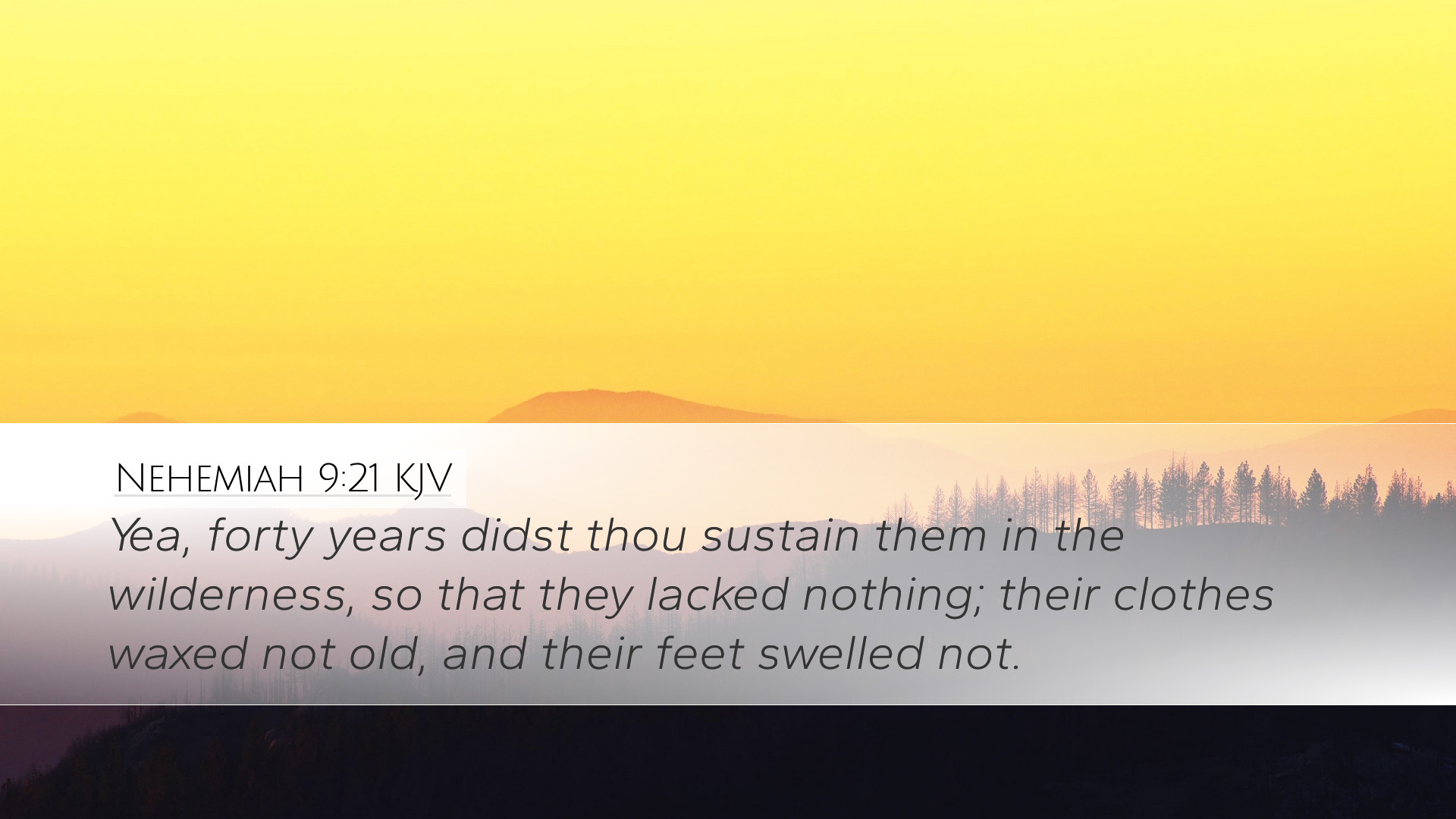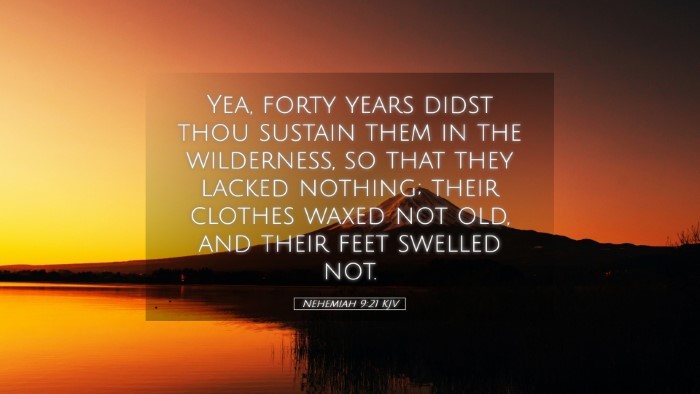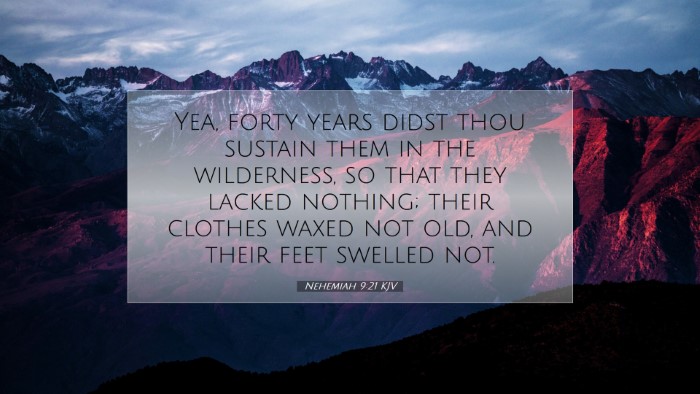Commentary on Nehemiah 9:21
Text of Nehemiah 9:21: “Yea, forty years didst thou sustain them in the wilderness, so that they lacked nothing; their clothes waxed not old, and their feet swelled not.”
Introduction
This verse from Nehemiah highlights God’s providential care and sustenance of the Israelites during their forty years in the wilderness. It serves as a crucial reminder of God's faithfulness amidst human failure and rebellion, a theme pervasive throughout the Scriptures.
Historical Context
The setting of Nehemiah 9 occurs after the return of the exiles from Babylon. The people gather to confess their sins and recount God's faithfulness. Nehemiah’s prayer in this chapter reflects on the history of Israel, emphasizing God’s unwavering support even in times of disobedience.
Divine Sustenance in the Wilderness
The verse asserts that for forty years, God sustained the Israelites in the wilderness.
- Duration: Forty years symbolizes a complete period within biblical literature, often associated with testing and preparation.
- Provision: The Israelites lacked nothing, indicating God's abundant provision, which included manna from heaven and water from the rock.
- Protection: Their clothes did not wear out, suggesting divine intervention in their daily needs, representing not only physical sustenance but also spiritual nurturing.
- Health: The mention of their feet swelling not demonstrates God's care for their physical well-being during their long journey.
Theological Reflections
This verse offers profound theological insights:
- God’s Faithfulness: Despite Israel's rebellion and lack of faith, God remained faithful. This illustrates God's unchanging nature and covenant faithfulness.
- Grace in Provision: The provision of their needs underscores the theme of grace—God gives out of His abundance, not merely out of obligation.
- Learning in the Wilderness: The wilderness experience was a transformative period, teaching dependence on God, exemplified through their miraculous sustenance.
Insights from Public Domain Commentaries
Matthew Henry's Commentary
Henry emphasizes the patience of God in dealing with Israel's doubts and fears. He notes how this period was filled with trials meant to purify the sensibilities of the people. The miraculous provisions served not only practical needs but also pointed to God’s covenantal promise and everlasting care.
Albert Barnes' Commentary
Barnes highlights the significance of divine faithfulness in the context of Israel's history. He reflects on how the lack of weariness in their clothes signifies that God's providential care extends beyond mere sustenance; it encompasses all aspects of life. This showcases God's power over nature and His ability to provide for His people miraculously.
Adam Clarke's Commentary
Clarke offers a practical application regarding the lessons from Israel's sojourn in the wilderness. He suggests that this verse accentuates the importance of faith and trust in God’s provision, even when circumstances appear dire. Clarke also emphasizes that the Israelites' experience should serve as a lesson for believers today regarding reliance on God's continual care.
Conclusion
Nehemiah 9:21 profoundly illustrates God's unwavering care for His people. The Israelites' experience in the wilderness reminds us of God's faithfulness amid challenges and the necessity of dependence on Him for sustenance and growth. As theologians, scholars, and pastors reflect on this verse, may it encourage a deeper understanding of God's character and inspire a living faith that trusts in His provisions.


